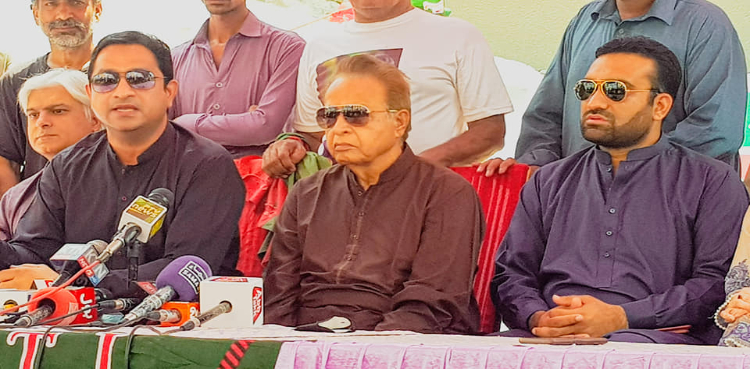The Supreme Court has issued notices to the government, political parties as well as the Pakistan Bar Council in the case against the judicial reforms bill, and adjourned the hearing.
The court also issued a notice to the Supreme Court Bar Association and the attorney general for Pakistan.
The chief justice also commented that an order will be issued shortly, adding if necessary, a judicial assistant will also be appointed.
Issuing notices issued to the parties concerned, the attorney general has been asked to assist. The federal government, AGP and political parties will be issued notices.
CJP Bandial observed that the court has utmost respect for parliament, remarking that the court wants to review the proposed Act.
The chief justice said the court will try to schedule the next hearing as soon as possible. The next hearing will be scheduled only after the availability of fellow judges, he observed.
The proposed act should be prevented from becoming a law until a decision in the case, petitioner’s lawyer Siddiqui said.
The Hasba Bill came in the form of a reference, Justice Muhammad Ali Mazhar noted, adding in that bill the governor was prevented from signing it.
The Law Ministry should be prevented from notifying the law till a decision, the lawyer contended.
Earlier today, an eight-member bench, headed by Chief Justice of Pakistan Umar Ata Bandial, started hearing a set of petitions against the SC (Practice & Procedure) Bill, 2023 passed by parliament and aimed at curtailing the top judge’s “unbridled” powers.
The bench has taken up pleas that were separately submitted by Mohammad Shafay Munir on Tuesday, and Raja Amir Khan and Chaudhry Ghulam Hussain on Wednesday.
The eight-member bench, headed by Chief Justice of Pakistan (CJP) Umar Ata Bandial, comprises Justice Ijazul Ahsan, Justice Muneeb Akhtar, Justice Mazahir Naqvi, Justice Muhammad Ali Mazhar, Justice Ayesha Malik, Justice Hassan Azhar Rizvi, and Justice Shahid Waheed.
Petitioner Raja Amir’s counsel Imtiaz Siddiqui says limiting the powers of the chief justice will affect the independence of the judiciary as well as other judges.
He commented that the case is significant under the current circumstances. He contended that the election commission and the federal government do not want elections to be held.
He says the Supreme Court is non-existent without the chief justice of Pakistan. The court is completed and starts working only after the appointment of the CJP.
Without the chief justice, even if there are other judges, the court is incomplete, Siddiqui maintained.
He said the court and judges faced personal criticism, and held the government ministers and lawmakers responsible for this.

















































